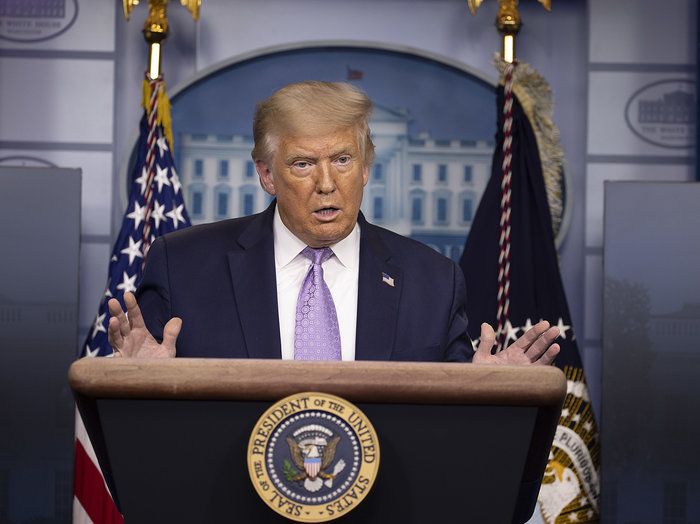Introduction:
Trump’s Shocking Statement
In 2019, amid increased pressures between India and Pakistan, previous U.S. President Donald Trump’s made a startling claim. Talking at the G7 Summit in France, Trump recommended that the two South Asian neighbors had come “close to a huge war,” indeed indicating that a atomic strife was barely maintained a strategic distance from.

He advertised this as portion of his clarification for why Trump’s had been in visit touch with both Indian Prime Serve Narendra Modi and Pakistani Prime Serve Imran Khan. Be that as it may, this declaration was rapidly and immovably rejected by the Indian government, which emphasized that the military engagement with Pakistan had continuously been ordinary in nature, never heightening to atomic brinkmanship.
Background: India-Pakistan Pressures and the Balakot Discuss Strikes
The setting of Trump’s comment relates to the February 2019 Pulwama dread assault in Jammu and Kashmir, which murdered over 40 Indian paramilitary faculties. The assault was claimed by Pakistan-based fear equip Jaish-e-Mohammed. In reaction, India conducted discusses strikes on a fear preparing camp in Blanket, profound inside Pakistani domain. This stamped the to begin with time since the 1971 Indo-Pak war that Indian planes crossed the Line of Control (LoC) to strike inside Pakistan.
Following this, pressures heightened quickly. Pakistan struck back by sending warrior planes into Indian airspace, driving to a brief dogfight. An Indian pilot, Wing Commander Abhinandan Varthaman, was captured by Pakistan and returned two days afterward. In spite of the strongly military standoff, the circumstance remained solidly inside the bounds of routine warfare.
India’s Official Reaction: Level Dismissal of Atomic Acceleration Claims
The Indian government, through its official spokespersons, categorically denied that any atomic choices had ever been considered or that the strife had drawn closer atomic edges. In reaction to Trump’s explanation, the Service of outside Issues (MEA) made it clear that India’s military activities were carefully calibrated, measured, and expecting exclusively to target dread framework. India kept up that it acted with restriction, duty, and key clarity.

MEA representative Ravish Kumar emphasized that India’s reaction was “non-military” and “pre-emptive” in nature, planned to dodge civilian casualties and not incite an all-out war. India did not put its atomic powers on caution, nor did it issue any atomic dangers. In differentiate; the accentuation was on counter-terrorism, not military victory or atomic brinksmanship.
Pakistan’s Talk vs. India’s Vital Restraint
While India worked out limitation, Pakistan’s talk was more forceful. Prime Serve Imran Khan cautioned of the plausibility of atomic war if pressures proceeded to rise. In any case, most worldwide spectators deciphered Khan’s comments as political posing or maybe than a real preparation to utilize atomic weapons.
India, as a signatory of the No To begin with Utilize (NFU) convention in atomic arrangement, emphasized its long-standing position of utilizing atomic weapons as it were in reaction to a atomic assault. This doctrinal clarity, combined with India’s think limitation, highlighted its commitment to maintaining a strategic distance from any frame of atomic escalation—even when provoked.
Global Responses and Misinterpretations
Trump’s explanation may have reflected either a misconception of the circumstance or an endeavor to highlight the U.S.’s discretionary association. He situated himself as an arbiter and peacemaker, recommending that his mediation made a difference defuse a possibly disastrous war. Whereas this may have been politically helpful for Trump, it distorted the nature of the crisis.
Global media rapidly picked up on Trump’s comment, with features recommending that India and Pakistan had been on the brink of a atomic war. This dramatist surrounding had driven to superfluous alert and misperceptions almost the region’s steadiness. Vital investigators in India and overseas countered these accounts by indicating to the nonappearance of any genuine atomic mobilization amid the crisis.
Strategic Centrality: The Significance of Measured Responses
India’s dismissal of Trump’s claim serves a more profound key reason. By freely removing itself from the thought of a atomic danger, India sends a clear flag to the worldwide community that it is a dependable atomic control. In differentiate to other countries that utilize atomic talk as a shape of impelling, India has reliably emphasized strategy and routine deterrence.
This clarity is crucial for keeping up territorial and worldwide certainty in South Asia’s steadiness. It too fortifies India’s picture as a develop control, one that works out control indeed beneath extraordinary incitement. Such restriction is not as it was ethically commendable but too deliberately judicious, making a difference to avoid heightening and welcoming worldwide support.
Lessons for Discretion: Capable Communication
The Trump’s scene too outlines the basic significance of dependable communication amid worldwide emergencies. Misstatements by compelling pioneers can make disarray and possibly arouse as of now tense circumstances. In nuclear-armed locales, the stakes are particularly high.
India’s incite and categorical dismissal of Trump’s account made a difference redress the record and maintained a strategic distance from giving authenticity to overstated accounts. It too unobtrusively passed on that worldwide powers must be cautious in their characterizations of clashes they are not straightforwardly included in. Whereas backchannel strategy is regularly supportive, open explanations must be genuinely grounded and strategically sound.
Conclusion: A Struggle Kept in Check
The 2019 India-Pakistan struggle, in spite of the fact that strongly, remained inside the bounds of routine fighting. India’s choice to conduct surgical strikes and discuss strikes was a calibrated reaction to fear based oppression, not a step toward full-scale war. Trump’s proposal of a near-nuclear encounter was wrong and unhelpful.

By solidly denying the atomic war account, India declared its key independence and mindful behavior. The scene underscored the significance of exact communication, astute strategy, and a clear refinement between counter-terror operations and acts of war. In a unstable locale like South Asia, such refinements are not fair semantic—they are basic to peace.

